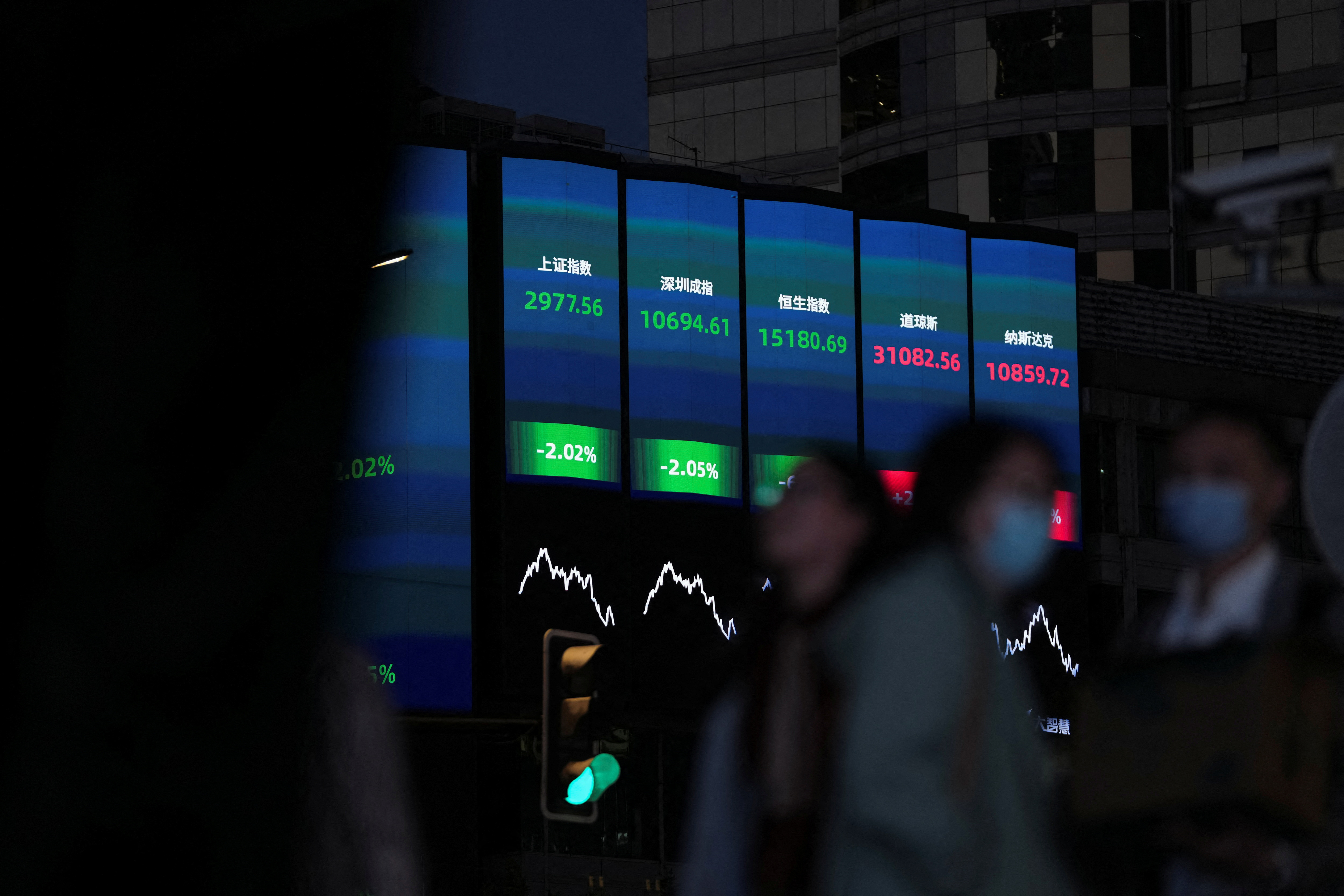
Asian equities rose on Thursday, propped up by Hong Kong and China stocks amid growing optimism over an easing of COVID restrictions in the world’s second biggest economy even as fears of a slowdown and worries over Fed interest rate rises linger.
MSCI’s broadest index of Asia-Pacific shares outside Japan (.MIAPJ0000PUS) was up 0.57%, on track to snap a two-day losing streak.
China’s stock market (.SSEC) was 0.14% higher, with Hong Kong’s Hang Seng Index (.HSI) surging nearly 3% after a pro-China newspaper reported that Hong Kong government is considering relaxing its COVID-19 curbs further.
The latest report comes after the government on Wednesday announced sweeping changes to ease a tough anti-COVID policy that has battered China’s economy.
“While it could be a bumpy journey over next few weeks, China is ready to move on from COVID in one to two quarters,” said Wenli Zheng, portfolio manager of the China Evolution Equity Strategy at T. Rowe Price, adding that Chinese equities could be the bright spot in 2023.
The gains in Asia were capped as increasing fears that the Federal Reserve might stick to a longer rate-increase cycle after strong jobs and service-sector reports crimped investors’ risk appetite.
Elsewhere in Asia, Australia’s S&P/ASX 200 index (.AXJO) lost 0.67%, while Japan’s Nikkei (.N225) fell to near a one-month low. E-mini futures for the S&P 500 fell 0.13%, while Eurostoxx 50 futures was down 0.20%, German DAX futures fell 0.18% and FTSE futures 0.17% lower.
Also weighing were U.S. Treasury yields, with five-year notes to 30-year bonds hovering at three-month lows.
“The thing that stands out is what’s going on U.S. Treasury market, there does not seem to be a lot behind the moves, and I think that’s what driving most of the rest of the market,” said Rob Carnell, head of ING’s Asia-Pacific research.
The U.S. central bank is widely expected to raise interest rates by 50 basis points next week after delivering four consecutive 75 bps hikes.
The Bank of Canada on Wednesday hinted that its historic tightening campaign was near an end as it raised benchmark overnight interest rates by 50 basis points to 4.25%, the highest level in almost 15 years.
Data on Wednesday showed that U.S. worker productivity rebounded at a slightly faster pace than initially thought in the third quarter, but the trend remained weak, keeping labour costs elevated.
The yield on 10-year Treasury notes was up 5.4 basis points to 3.462%, while yield on the 30-year Treasury bond was up 3.6 basis points to 3.450%.
The two-year U.S. Treasury yield, which typically moves in step with interest rate expectations, was up 3.9 basis points at 4.295%.
In the currency market, the U.S. dollar wobbled as the prospect of a recession in the country loomed. The euro down 0.1% to $1.0495, while sterling was last trading at $1.2178, down 0.17% on the day.
Oil prices rose on Thursday after sinking to their lowest level this year. U.S. crude recently rose 0.9% to $72.66 per barrel and Brent was at $77.79, up 0.8% on the day.

